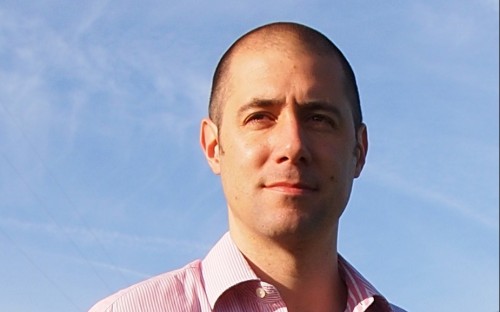Abundance, set up by an Imperial MBA grad, is the first regulated investment company that lets ordinary folks invest in renewable energy projects.
With widespread loss of confidence in the UK's big-name financial services firms, it isn't surprising that people are seeking out alternatives. Abundance, which describes itself on its website as a "building society for the 21st Century" relies on a new concept of "Democratic Finance", allowing ordinary people to invest in projects within their communities.
Karl Harder, an Imperial College Business School MBA graduate came up with the idea for Abundance. It was a simple one of allowing people to own bits of renewable energy projects near them. Rather than having the profits sucked out to global investors, he wanted to localize the benefits. He took his idea to Imperial College Business School and worked on it during his MBA. Four years later, Abundance is up and running!
But the journey wasn't quite that simple. Karl, 36, started out working as a parliamentary researcher on renewable energy. He moved on to establish his first green business and ran it for five years before leaving to do the MBA. His first business, Green Your Office provided solutions for environmental monitoring and accounting in offices, and clients included Virgin and the British Transport Police.
He left the business to do the Imperial MBA because he wanted to pursue the idea of combining renewable energy with local investing. "I was shocked by the amazing investments that people with money get access to. The very best investments require independent financial advisors and these are very expensive", he said.
He continued, "People are usually alienated in finance because of the terminology used and the very fact that those in the mainstream industry are talking to a particular clique".
Abundance is about opening up financial investment to the average person. Their website allows you to easily browse through the wind and solar projects available and decide how much you want to invest; using their calculator to estimate how much you could earn from your investment. The minimum amount you can invest is five pounds!
Karl told us that the value of business school was in giving him the network and the resources that allowed him to build the business. "I didn't have the all the requisite skills on my own and business school gave me the external connections I needed to build the business", he said. Imperial's culture of fostering innovation and entrepreneurship, as well as its expertise in the field of renewable energy, meant that Karl was in the perfect place to nurture his idea.
Democratic Finance is not yet a popular model so Karl and the Abundance team had to convince the financial regulatory body in the UK, the Financial Services Authority (FSA), that it is a valid method of investment.
It took 18 months for Abundance to get certified. The FSA’s argument was that investing in renewables isn’t easy for the average person, but Abundance countered that investing in renewable energy is a lot simpler than say buying shares of firms listed on the stock exchange or other more complex financial products.
“We argued that it's about putting money directly into something. If it's a wind project, understanding that if it's windy, you’ll earn more money is a lot easier than understanding all the risk involved in investing in so many other financial products.
"You can search for what wind generators do on Google and read it but you can’t search for what will happen to RBS in five years time”.
We asked Karl if Abundance had run into other skeptics and he said other than the FSA, they hadn’t. They raised their first round of money relatively easily last November and have a steady stream of projects to work with. Of course, all the projects are thoroughly vetted before they are put up on the Abundance website.
So, how big does Karl see Abundance growing in the future? “Potentially enormous”, he said. “There is lots of money in renewable energy from a returns perspective and people are looking to do more meaningful things with their money and are terrified to put their money in black box investment funds”.
RECAPTHA :
1a
08
cd
c3







